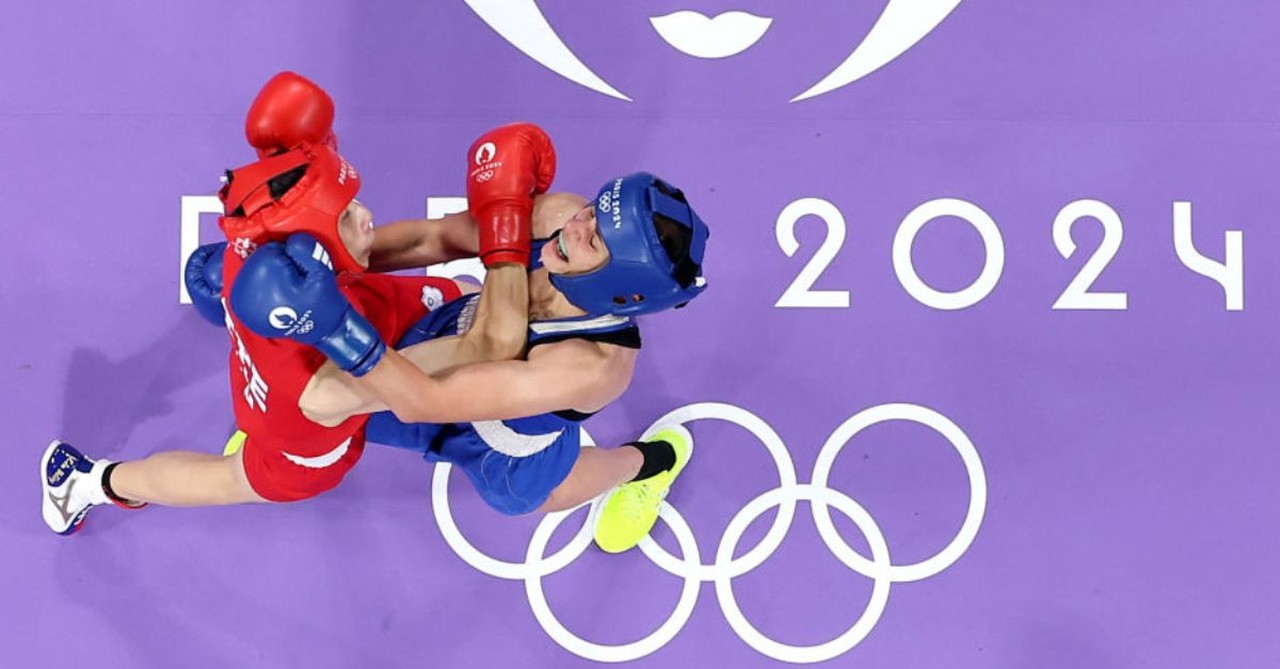
The debate over two boxers competing in the female division at the Paris Games has raised questions about gender and fairness while igniting a heated social media debate. It’s also led to rumors masquerading as fact. The controversy focuses on Algeria’s Imane Khelif and Taiwan’s Lin Yu-ting, two boxers who are guaranteed a medal in Paris but whose gender has been questioned.
Following are five questions, with answers, about Khelif and Lin.
Photo Credit: ©Getty Images/Richard Pelham/Stringer
1. Are the two boxers at the center of the controversy transgender?
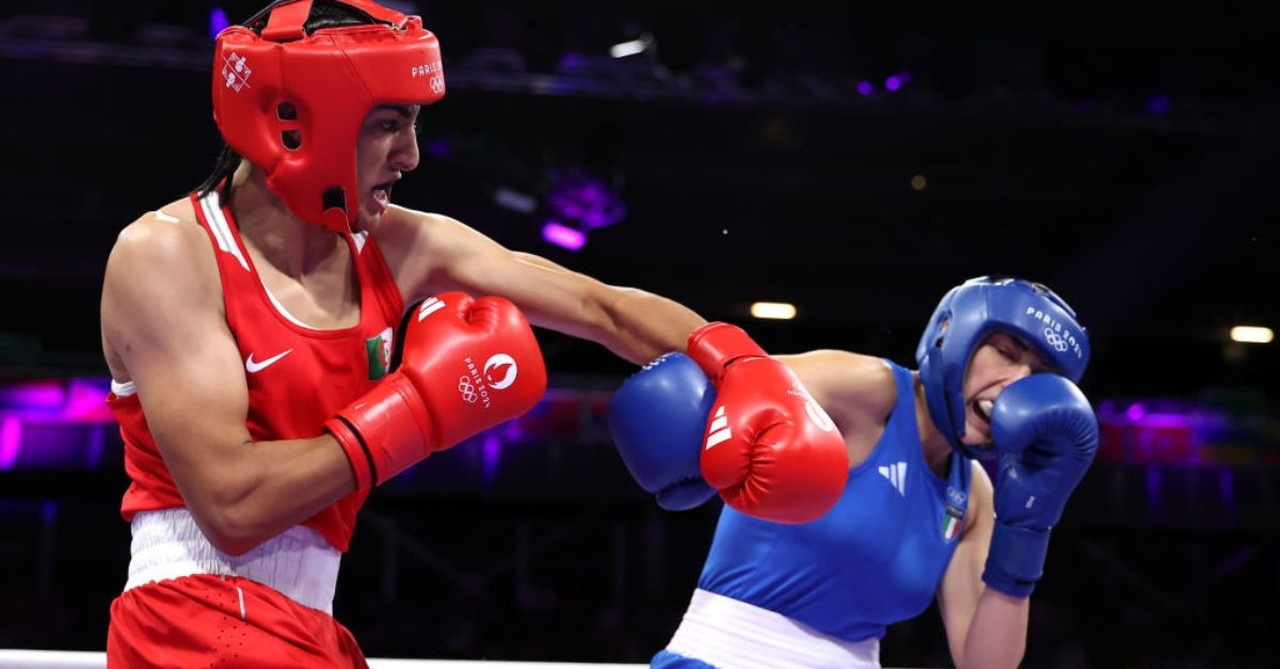
1. Are the two boxers at the center of the controversy transgender?
SLIDE 1 OF 5
Apparently not. There is no public record that Khelif and Lin identify as transgender, and LGBT media outlets that regularly write about gay, lesbian, and transgender athletes are not covering the success of the two boxers.
However, there is a female boxer at the Olympics who identifies as transgender but who has been overlooked amidst the uproar. That boxer is the Philippines’ Hergie Bacyadan, who was born female and competes in the female category but identifies as a man. Bacyadan lost in Paris in the Round of 16.
Photo Credit: ©Getty Images/Richard Pelham/Stringer
2. Are Khelif and Lin men?
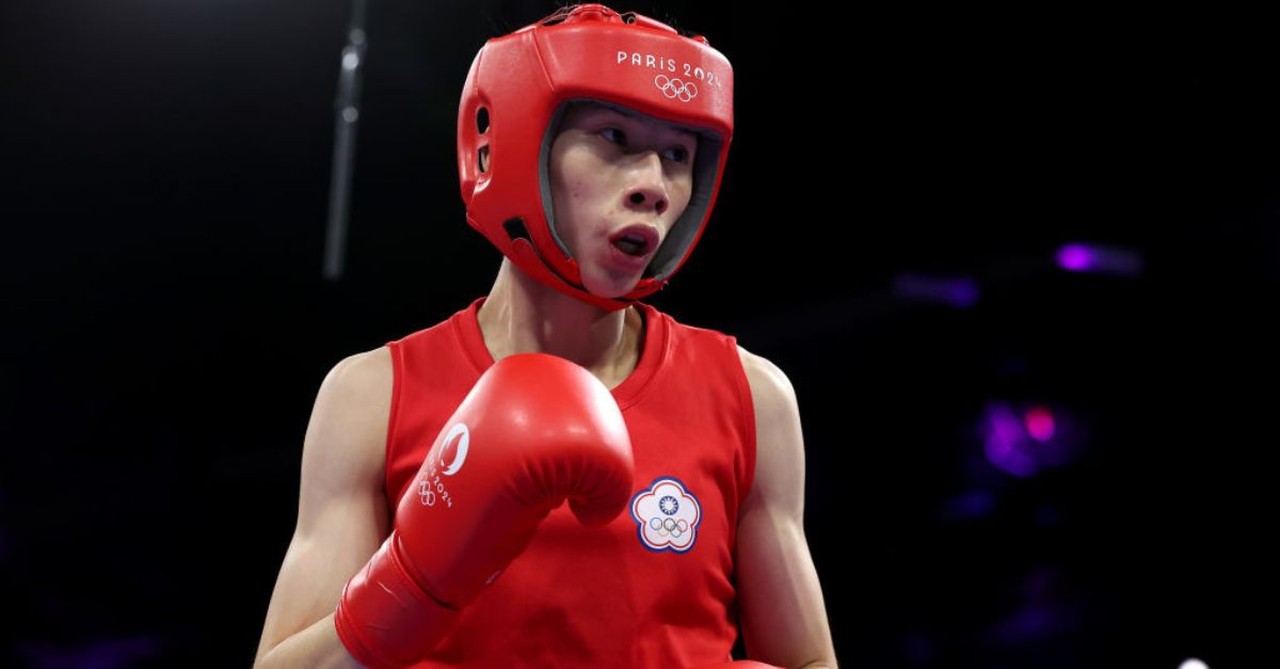
2. Are Khelif and Lin men?
SLIDE 2 OF 5
This is the heart of the controversy.
Umar Kremlev, a Russian and the president of the International Boxing Association (IBA), was reported in Russian media last year as saying “DNA testing” had shown Khelif and Lin “have XY chromosomes” -- that is, male chromosomes.
Both Khelif and Lin were stripped of their wins at the 2023 IBA Women’s World Boxing Championships. (Khelif had advanced to the gold medal match but was pulled from the tournament before fighting in that round; Lin was stripped of a bronze medal.)
The IBA later released a statement stating, “The athletes did not undergo a testosterone examination but were subject to a separate and recognized test, whereby the specifics remain confidential.”
The International Olympic Committee, though, says both boxers are female. The IOC released a statement last week saying: “As with previous Olympic boxing competitions, the gender and age of the athletes are based on their passport.”
“We have seen in reports misleading information about two female athletes competing at the Olympic Games Paris 2024,” the IOC said. “The two athletes have been competing in international boxing competitions for many years in the women’s category, including the Olympic Games Tokyo 2020, International Boxing Association (IBA) World Championships and IBA-sanctioned tournaments.”
The IOC added, “These two athletes were the victims of a sudden and arbitrary decision by the IBA. Towards the end of the IBA World Championships in 2023, they were suddenly disqualified without any due process.”
There is no record of either boxer ever competing as a male.
The IBA previously oversaw boxing in the Olympics. However, due to various issues related to governance, financial management, and judging integrity, the IOC suspended the IBA’s recognition in 2019 and eventually decided to cut ties completely in 2023. The IOC took over the management of boxing for the Tokyo 2020 Olympics (held in 2021) and continued to do so for the Paris 2024 Games. Meanwhile, about three dozen nations have left IBA to form a new organization, World Boxing, in hopes of keeping boxing in the Olympics in 2028.
“We have two boxers who are born as a woman, who have been raised a woman, who have a passport as a woman, and who have competed for many years as women,” said IOC President Thomas Bach.”
And this is the clear definition of a woman. There was never any doubt about them being a woman.”
Some observers have speculated that Khelif and Lin could be DSD (Differences in Sex Development), whereby they would have female genitalia but male chromosomes. That, though, is merely conjecture.
Meanwhile, Khelif’s father presented a birth certificate to media members in recent days showing she was born female.
“Imane is a little girl that has loved sport since she was six years old; she used to play football,” Amar Khelif said. “These critics and rumors aim to destabilize Imane; they don’t want her to be the champion of the world.”
Other observers dismiss Kremlev’s claims and Russian media altogether, noting that Russia has a history of doping scandals and systematic cheating in sports, which undermines the credibility of their claims. Russia, for example, was banned from the Olympics of 2018, 2020, and 2022 due to the fallout of a doping scandal. (Days prior to Khelif’s disqualification, she had defeated a previously unbeaten Russian boxer; her disqualification meant that the Russian boxer was undefeated once again.)
Kremlev, though, stands by his claim.
“I do not understand why they kill women’s boxing,” he said of the IOC. “Only eligible athletes should compete in the ring for the sake of safety.”
On Monday, the IBA held a news conference where IBA Chief Executive Chris Roberts said the organization could not release the test results but that the public could “read between the lines.”
“The results of the chromosome tests demonstrated both boxers were ineligible,” Roberts said.
Photo Credit: ©Getty Images/Richard Pelham/Stringer
3. Have they boxed in previous Olympics?
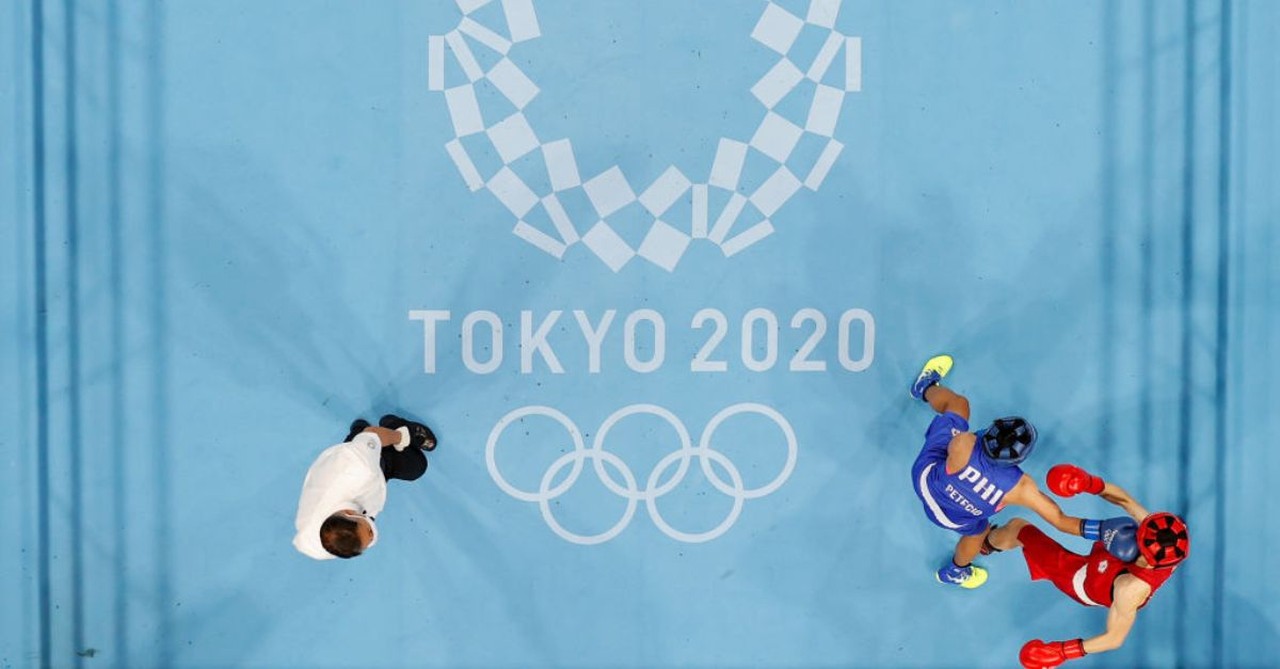
3. Have they boxed in previous Olympics?
SLIDE 3 OF 5
Yes. Khelif lost in Round 8 at the 2020 pandemic-delayed Tokyo Games in 2021, while Lin lost in Round 16. They compete in different weight divisions and have never fought one another.
Photo Credit: ©Getty Images/Ueslei Marcelino - Pool/Pool
4. How many matches have they lost?
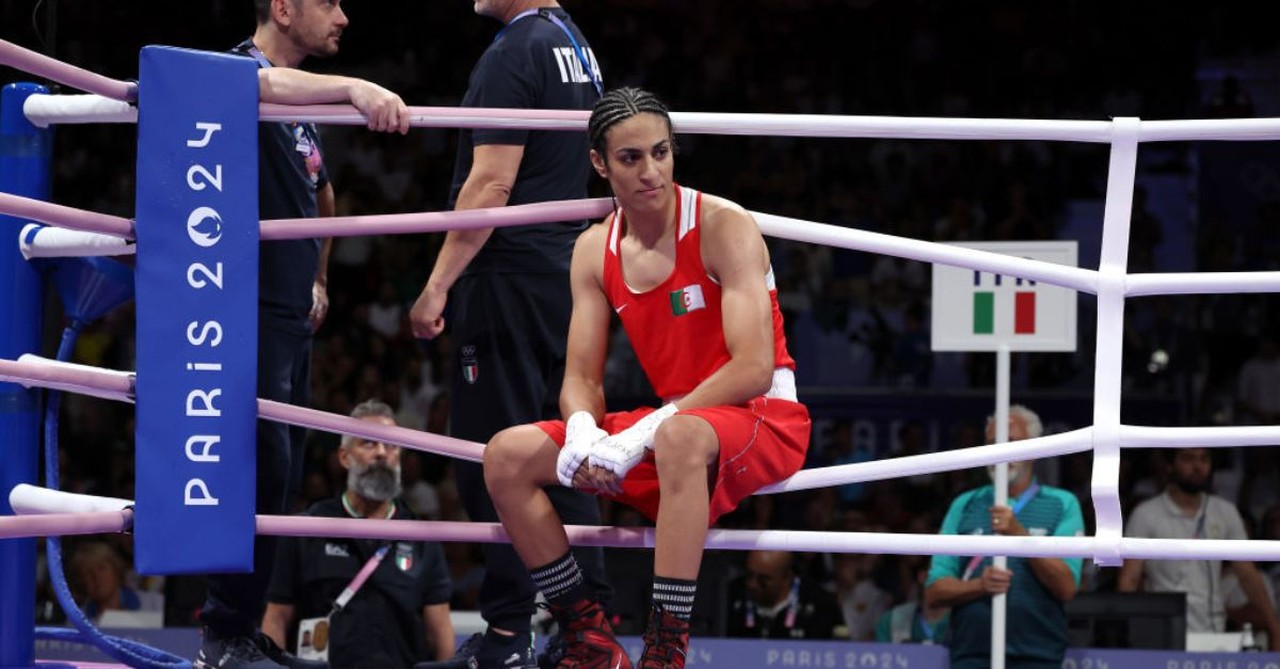
4. How many matches have they lost?
SLIDE 4 OF 5
Heading into the Paris Games, Khelif had a record of 37 wins and nine losses, while Lin was 40-14. Khelif is 5-foot-10, Lin 5-9.
Photo Credit: ©Getty Images/Richard Pelham/Stringer
5. Are there any transgender athletes in other Olympic sports?
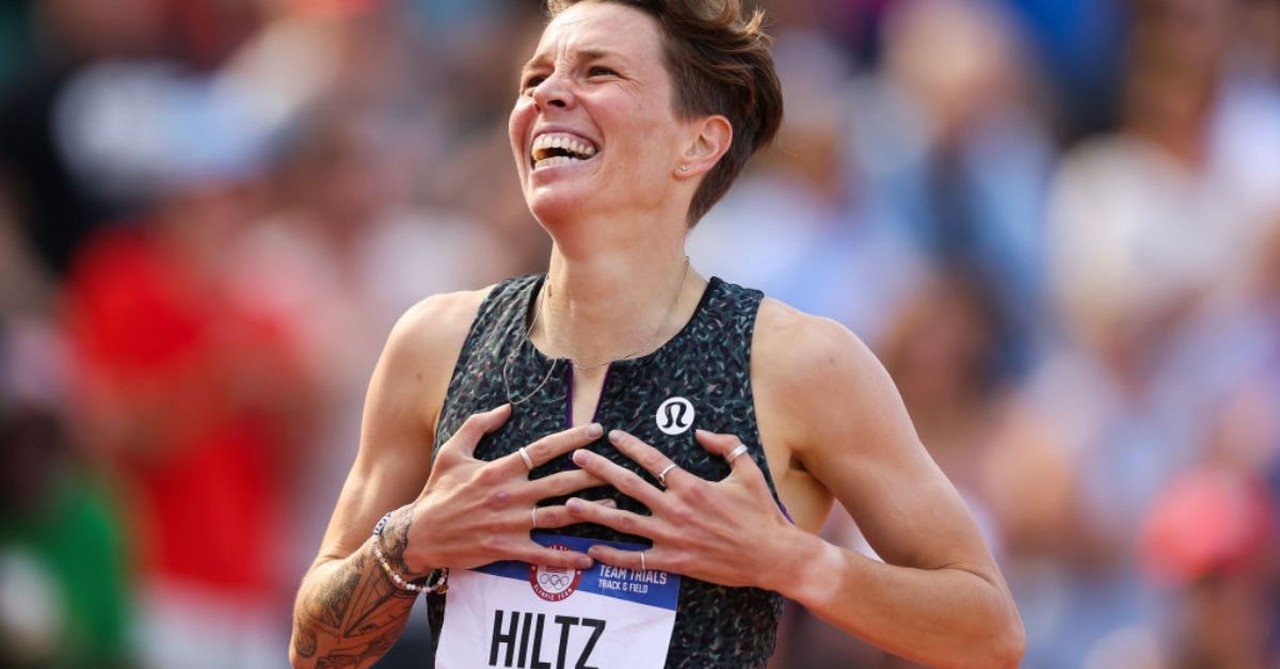
5. Are there any transgender athletes in other Olympic sports?
SLIDE 5 OF 5
Although there are a handful of Olympic athletes who identify as transgender or non-binary competing in the Olympics, there are no known trans athletes who were born male and are competing as female. (For example, American Nikki Hiltz, who identifies as non-binary, was born female and competes as a female but uses they/them pronouns.)
In fact, this year’s Summer Games is the first with stricter gender rules, with at least 10 sports, including track and field, cycling, swimming, rugby, rowing, and cricket, effectively banning males from female events.
In 2023, the worldwide governing body for track and field (World Athletics) approved new rules prohibiting biological males from competing in women’s events if they have gone through male puberty, calling it an issue of “fairness.” Prior to that, FINA—the governing body for swimming—passed a new rule banning male athletes from competing in international female swimming events if they’ve gone through puberty.
FINA cited studies showing that males have a “relative performance advantage over biological females.”
“A biological female athlete cannot overcome that advantage through training or nutrition,” FINA said.
Contrary to conventional wisdom, many major sports at the Paris Games have stricter rules on transgender athletes than previous Olympics.
Related Article: Transgender Runner Qualifies for Olympics in Record Time
Photo Credit: ©Getty Images/Christian Petersen/Staff
Michael Foust has covered the intersection of faith and news for 20 years. His stories have appeared in Baptist Press, Christianity Today, The Christian Post, the Leaf-Chronicle, the Toronto Star and the Knoxville News-Sentinel.
Listen to Michael's Podcast! He is the host of Crosswalk Talk, a podcast where he talks with Christian movie stars, musicians, directors, and more. Hear how famous Christian figures keep their faith a priority in Hollywood and discover the best Christian movies, books, television, and other entertainment. You can find Crosswalk Talk on LifeAudio.com, or subscribe on Apple or Spotify so you never miss an interview that will be sure to encourage your faith.
Originally published August 05, 2024.







